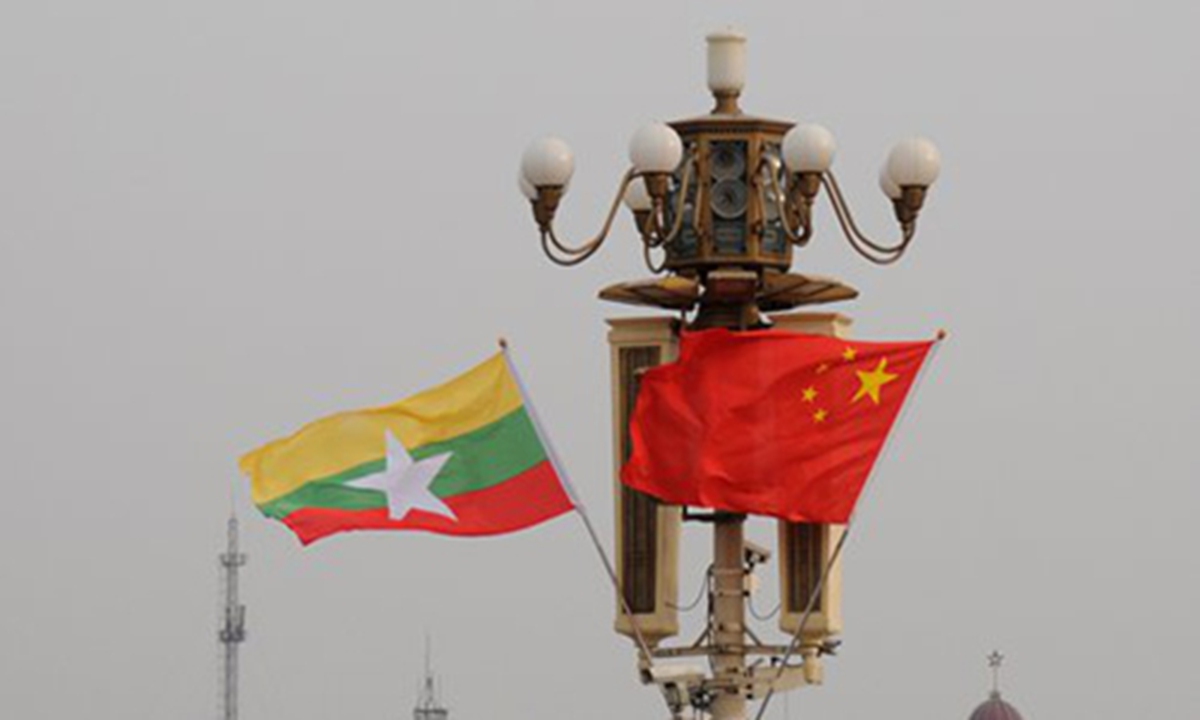Political tricks won’t hinder China-Myanmar relations
Source: Global Times Published: 2020/7/19 20:02:14

Photo: VCG
In an opinion article published on Saturday, George N. Sibley, Chargé d'Affaires at the US embassy in Myanmar, used the Hong Kong and the South China Sea issues to attack China using far-fetched and misleading logic.Cooking a conspiracy theory that Myanmar's sovereignty is under erosion, the article marks a deliberate attempt to undermine China-Myanmar cooperation by driving a wedge between the two countries.
The ongoing coronavirus spread in the US has largely stymied its economic recovery. In contrast, China, as the first major economy to recover from the pandemic after a nationwide lockdown and arduous efforts to bring the outbreak under control, is actively engaging in trade cooperation with other countries and regions, especially with the neighboring Southeast Asian countries.
China's friendly interaction with ASEAN is certainly not a development the US feels comfortable with, which is why Washington is sparing no effort to create obstacles and stir up nationalist sentiment against China among people of the ASEAN nations in the name of human rights and sovereignty. The provocative article by Sibley is the latest example of such venomous attempts from the US.
Yet, with good momentum persistently building up in China-Myanmar ties, it would be unrealistic and delusional to expect the Myanmar people to buy into the US conspiracy theory, as most of them are practical enough to care more about the substantial economic benefits from closer cooperation with China, than falling into the trap set up by the US.
At present, China is Myanmar's largest trading partner. Statistics showed that in last year, bilateral trade between the two countries totaled 128.91 billion yuan ($18.05 billion), up 28.5 percent from the previous year. Meanwhile, imports from Myanmar to China soared 42.8 percent year-on-year.
For a long time, a power supply shortage has hindered the development of many industries in Myanmar, and the country is now counting on Chinese companies to help build a modern power supply network to back up industrial production.
Such a demand for infrastructure construction has posed unprecedented opportunities for complementary cooperation between China and Myanmar in recent years.
Figures showed that in the first nine months of 2019, Chinese companies signed engineering contracts worth $4.77 billion in Myanmar, up 238.1 percent year-on-year.
These facts and figures reveal the simple rule that trust and mutual benefit are the basis of economic cooperation between the two nations, which will continue to see broadening cooperation in agriculture, manufacturing and connectivity, among other fields.
It is the Myanmar people that have been enjoying the tangible benefits from the solid friendly ties with China. We believe Myanmar people won't let the US plot succeed.
Posted in: GT VOICE